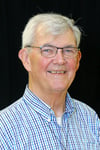History Revisited
I must admit, I am a history buff. I enjoy reading about the past. In my reading, I have found that history can be as broad as it is long; the further in the past you go to significant events, the more additional facts come to light and the more our perspective changes.
Halfway through the eleven week course ‘Listening to Indigenous Voices’, I have become aware of many facts, acts, and government policies that influenced the colonization of Canada and, especially, the impact they have had on the Indigenous people who lived and thrived in Canada before the European settlers arrived.
The course was put together by the Jesuit Forum for Social Faith and Justice. The forum promotes small group sharing circles to encourage transformative learning and engagement on themes related to ecology, justice, spirituality, and right relationships.
The course begins by sharing what archeologists, anthropologists, and Indigenous oral history reveals about the culture and civilization of Indigenous people prior to European exploration and settlement. It continues by chronicling the contrast and clash of the world views of the Europeans and the Indigenous. Without fully understanding the customs and beliefs of the communities they found here, the Europeans looked upon the Indigenous people as heathens and savages. This negative beginning has tainted relations right up to present times.
We are discovering many alienating government policies regarding land acquisition, native displacement, treaties, policies of assimilation, residential schools, relocations to reserve lands, and the Indian Act and its restrictions. The course is also up-to-date in exploring more positive policies, like the Truth and Reconciliation Commission report.
Our Monday evenings fly by, with animated sharing of that week’s chapter. Each participant has an opportunity to offer reflections on what we have discovered. The discussion takes the form of sacred listening. Each speaker is heard without interruption and the sharing moves the group toward consensus.
“I am enjoying learning and discovering a new culture,” Hoda Azar said. “Coming from a background where I have been exposed to four cultures in my life experience, I was eager to explore Indigenous culture. I was surprised by how the Indigenous people acknowledge the Spirit in all things — in the entire animal kingdom, within plants, rocks, and the waters of the world.”
Louise Donnelly, another participant, appreciates the format of the evenings. “I am enjoying the space for sharing that the circle provides,” Louise said. “There is respect for each other’s thoughts and room to grow in sharing. The circle resembles the Indigenous circle for important discussion.”
“It has given me hope, a deeper awareness of the Indigenous peoples & desire to stand with the First Nations people in their pursuit of Truth & Reconciliation,” said John Hodd.
“I am so grateful that our parish is doing ‘Listening to Indigenous Voices’,” says Dinah Simmons, a parish staff member. “The course can lead to greater understanding, to greater connectedness, and a greater sense of responsibility for the past and for the future.
“Personally, this course has allowed me to grieve with and for my Indigenous sisters and brothers, and to grieve over the sins of church and government; my church, my government. The expression, 'We are all treaty people,' tells me that I am part of the history of this country. As a Christian, I know that I am connected to the God who rescued slaves from Egypt, the God who raised Jesus from the dead.
“It is said that the Church's social justice teaching is its best-kept secret. The Church does have an extensive social justice teaching, rooted in Scripture. The prophets and Jesus spoke for justice, taught about justice, acted for justice. It's something we are called to as Christians.
“This is not an easy study. These are disturbing issues, not easy to face. And the way forward is not clear. But in my small group, we want to have more open minds and more open hearts. We are awed by what we are learning of the spirituality and worldview of First Nations, and we see many connections with our own faith and with the environmental movement. And so, bit by bit, we are growing in understanding and in our commitment to find a better way forward. May it be so.”
There is great enthusiasm for the course. It opens up a period of history that has, for a long time, been viewed through a distorted lens. It tests our biases and gives us reason to look beyond them for the truth.
Perhaps this is material for your Life Group. The course books and internet content are readily available, and I am sure if you felt the need of a facilitator, someone who has completed the course would be willing to help. If the opportunity arises, please take it. You will not be disappointed.
Part of the content is in a booklet and part is published at ltiv.ca.
